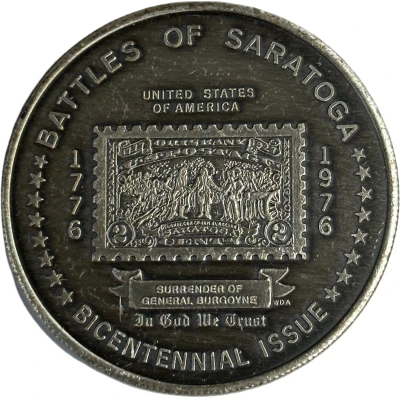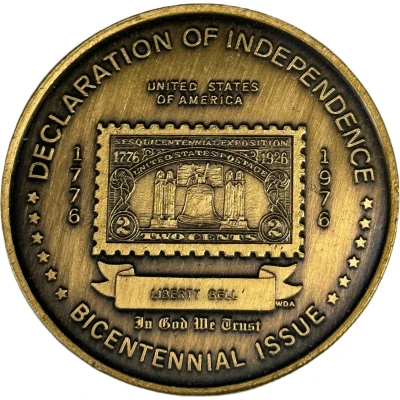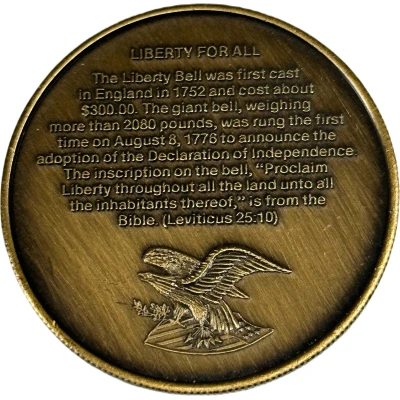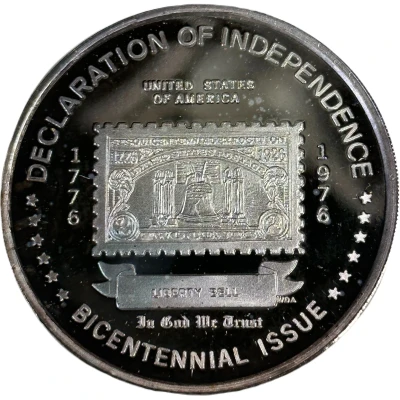
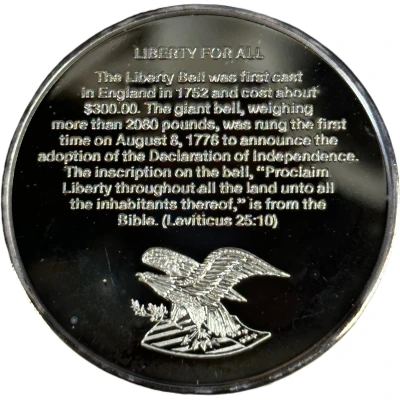

Medallion - Declaration of Independence Liberty Bell
1976 year| Silver (.999) | 31.2 g | 39.45 mm |
| Location | United States |
|---|---|
| Period | Federal republic (1776-date) |
| Type | Medals › Commemorative medals |
| Year | 1976 |
| Composition | Silver (.999) |
| Weight | 31.2 g |
| Diameter | 39.45 mm |
| Thickness | 3.15 mm |
| Shape | Round |
| Technique | Milled |
| Orientation | Medal alignment ↑↑ |
| Updated | 2024-11-13 |
| Numista | N#380515 |
|---|---|
| Rarity index | 97% |
Reverse
Narrative text over an Eagle with Arrows in one talon and a olive branch in the other standing on a shield
Script: Latin
Lettering:
LIBERTY FOR ALL
The Liberty Bell was first cast
in England in 1752 and cost about
$300.00. The giant bell, weighing
more than 2080 pounds, was rung the first
time on August 8, 1776 to announce the
adoption of the Declaration of Independence.
The inscription on the bell, "Proclaim
Liberty throughout all the land unto all
the inhabitants thereof," is from the
Bible (Leviticus 25:10)
Designer: W. D. Ashford
Edge
Reeded with inscription
Script: Latin
Lettering: .999 F.S.
Comment
Some of the information about James C. Curtis has not been verified.
James C. Curtis was a postmaster in Memphis, Tennessee. In the early 1970's he commissioned the production of a set of twelve medallions commemorating major events in postal history. This was done in order to promote collecting and generate revenue. Apart from the first medallion which was sterling, each of the medallions were produced in three types of metals, .999 Fine Silver, Nickel-Silver, and Bronze. The US Mint struck the medallions on behalf of the Post Office. The 1 Oz silver rounds were produced with a proof like finish in limited quantities and each one was serial numbered on the edge.
